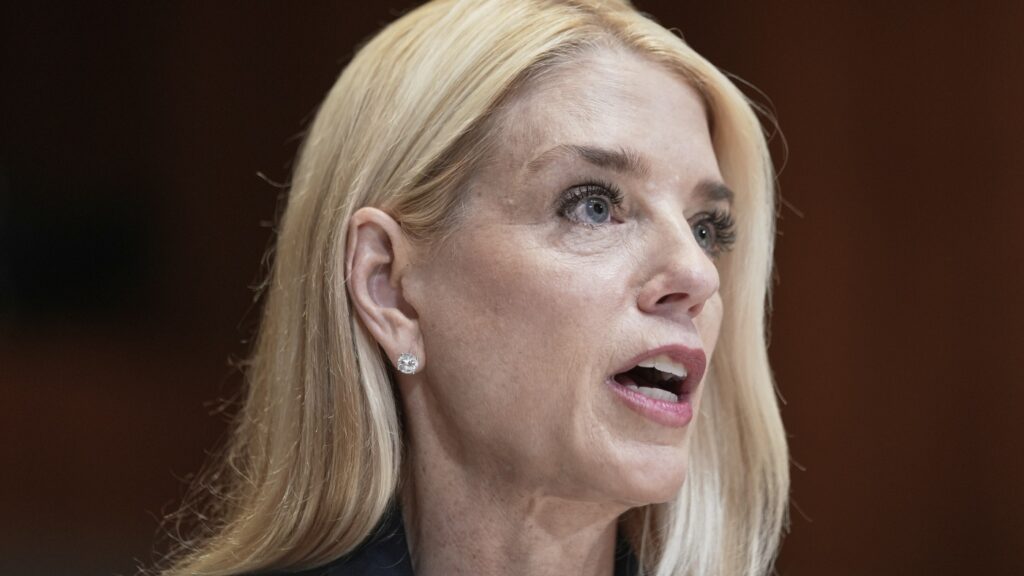
Attorney General Pam Bondi testifies during a Senate Appropriations Committee hearing on the President's Fiscal Year 2026 Budget on Capitol Hill, Wednesday, June 25, 2025, in Washington. (AP Photo/Mariam Zuhaib)
WASHINGTON, D.C. – In an unprecedented legal move, the Trump administration has filed a lawsuit against all 15 federal judges in Maryland, challenging an order that halts the immediate deportation of certain migrants.
Immediate Impact
The lawsuit, filed on Tuesday, underscores the administration’s determination to assert its executive powers over immigration enforcement. This legal battle reflects growing tensions between the administration and the federal judiciary, which has frequently blocked executive actions deemed unlawful.
“It’s extraordinary,” said Laurie Levenson, a professor at Loyola Law School. “And it’s escalating DOJ’s effort to challenge federal judges.”
Key Details Emerge
The contentious order, signed by Chief Judge George L. Russell III in May, prevents the administration from deporting immigrants who file for a review of their detention with the Maryland district court. The order halts removals until 4 p.m. on the second business day following the filing of a habeas corpus petition.
The administration argues that this automatic pause contravenes a Supreme Court ruling and infringes upon the president’s authority to enforce immigration laws.
By the Numbers
15 federal judges in Maryland are named in the lawsuit.
The order affects immigrants filing for detention reviews in Maryland.
Industry Response
Attorney General Pamela Bondi expressed frustration with judicial rulings that have obstructed President Trump’s agenda. “The American people elected President Trump to carry out his policy agenda: this pattern of judicial overreach undermines the democratic process and cannot be allowed to stand,” Bondi stated.
A spokesman for the Maryland district court declined to comment on the lawsuit.
Background Context
The Trump administration’s legal action is part of a broader conflict with the judiciary over immigration policy. The administration has faced numerous legal challenges to its immigration initiatives, with courts frequently issuing rulings that block executive actions.
President Trump has vocally criticized unfavorable judicial decisions, even suggesting the impeachment of a federal judge in Washington over a deportation ruling. This prompted Supreme Court Chief Justice John Roberts to assert, “Impeachment is not an appropriate response to disagreement concerning a judicial decision.”
Expert Analysis
James Sample, a constitutional law professor at Hofstra University, noted that the lawsuit represents a departure from legal norms. “Normally when parties are on the losing side of an injunction, they appeal the order — not sue the court or judges,” he explained.
Sample acknowledged that while the Justice Department has a point about the extraordinary nature of injunctions, the administration’s actions in moving detainees to avoid legal review have prompted the courts to issue such orders.
What Comes Next
The Trump administration has requested that Maryland judges recuse themselves from the case, proposing that a federal judge from another state hear the matter. This move could set a precedent for future legal strategies involving executive authority and judicial intervention.
The timing is particularly significant as the administration continues to face legal obstacles to its immigration policies, with potential implications for future executive actions.
As the legal battle unfolds, the focus remains on the balance of power between the executive branch and the judiciary, with broader implications for the enforcement of immigration laws in the United States.





